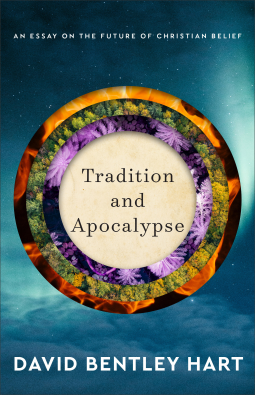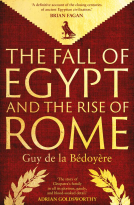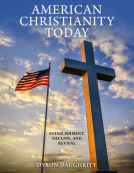
Tradition and Apocalypse
An Essay on the Future of Christian Belief
by David Bentley Hart
This title was previously available on NetGalley and is now archived.
Send NetGalley books directly to your Kindle or Kindle app
1
To read on a Kindle or Kindle app, please add kindle@netgalley.com as an approved email address to receive files in your Amazon account. Click here for step-by-step instructions.
2
Also find your Kindle email address within your Amazon account, and enter it here.
Pub Date 8 Feb 2022 | Archive Date 8 Apr 2022
Baker Academic & Brazos Press | Baker Academic
Talking about this book? Use #TraditionandApocalypse #NetGalley. More hashtag tips!
Description
In this carefully argued essay, David Bentley Hart critiques the concept of "tradition" that has become dominant in Christian thought as fundamentally incoherent. He puts forth a convincing new explanation of Christian tradition, one that is obedient to the nature of Christianity not only as a "revealed" creed embodied in historical events but as the "apocalyptic" revelation of a history that is largely identical with the eternal truth it supposedly discloses. Hart shows that Christian tradition is sustained not simply by its preservation of the past, but more essentially by its anticipation of the future. He offers a compelling portrayal of a living tradition held together by apocalyptic expectation--the promised transformation of all things in God.
Available Editions
| EDITION | Other Format |
| ISBN | 9780801039386 |
| PRICE | US$24.99 (USD) |
| PAGES | 208 |
Featured Reviews
 Educator 198608
Educator 198608
This is one of my slowest reviews ever on NetGalley because it's such a rich book. Every page offers a lot to think about and you often want to look up DBH's vocabulary or Bible quotes. In an age where so much theology just says the obvious things, this is a book worth engaging with at length and thinking about afterwards.
David Bentley Hart's writing style is not for the faint of heart. He can be quite dense and wordy. But in this essay he "critiques the concept of "tradition" that has become dominant in Christian thought as fundamentally incoherent. He puts forth a convincing new explanation of Christian tradition, one that is obedient to the nature of Christianity not only as a "revealed" creed embodied in historical events but as the "apocalyptic" revelation of a history that is largely identical with the eternal truth it supposedly discloses. Hart shows that Christian tradition is sustained not simply by its preservation of the past, but more essentially by its anticipation of the future. He offers a compelling portrayal of a living tradition held together by apocalyptic expectation--the promised transformation of all things in God."
Key quotes:
"What is the Gospel apart from the promise that God's truth has entered creation as a historical event whose full meaning can be known only in its entire historical unfolding? What has it ever claimed to be other than the ever fuller unveiling of things hidden from the foundation of the world? Faith, moreover, lives within and positively requires this hiddenness. It must, and can do no other. Faith is not the assurance that one possesses the fullness of truth, but is rather a fidelity to the future disclosure of the full meaning of what little one already knows." (104)
"It should never be forgotten that Christianity entered human history not as a new creed or sapiential path or system of religious observances, but as apocalypse: the sudden unveiling of a mystery hidden in God before the foundation of the world in a historical event without any possible precedent or any conceivable sequel; an overturning of all the orders and hierarchies of the age, here on earth and in the archon-thronged heavens above; the overthrow of all the angelic and daemonic powers and principalities by a slave legally crucified at the behest of all the religious and political authorities of his time, but raised up by God as the one sole Lord over all the cosmos; the abolition of the partition of Law between peoples; the proclamation of an imminent arrival of the Kingdom and of a new age of creation; an urgent call to all persons to come out from the shelters of social, cultic, and political association into a condition of perilous and unprotected exposure, dwelling nowhere but in the singularity of this event - for the days are short." (135)





